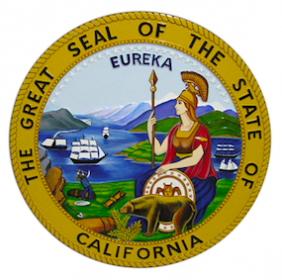Assemblyman Promises to Resurrect California Online Poker Bill
The online poker bills in California may be dead for this year, but following the pattern over the last several years, they will be back. State Assemblyman Reginald Byron Jones-Sawyer, Sr., the man who introduced AB 2291 during the 2013-2014 legislative session, issued a press release this week stating that he has every intention of trying again next session.
Earlier this month, Jones-Sawyer conceded that there was no longer enough time to get AB 2291 through the legislation and thus get California online poker legalized and regulated. State Senator Lou Correa, who introduced twin bill SB 1366 in the Senate, came to the same conclusion.

California State Assemblyman Reginald Byron Jones-Sawyer, Sr.
State legislators, particularly Correa, have been introducing online poker legislation in California for the last few years and every time, it stalls out horribly. The main problem seems to be that there are simply too many stakeholders that want a piece of the finite, though very large, pie. Native American tribes, card rooms, and race tracks are all established gambling entities in the state that not only want to be included in the online industry, but also often want things exactly their way.
This year, despite the legislation going absolutely nowhere, things did seem to be looking up. Two things were the primary hiccups: 1) whether or not race tracks should be allowed to apply for an internet gaming license, and 2) whether or not there should be a “bad actor” clause that would lock out any operator who offered online poker to Californians after 2006.
The Native American tribes are the ones who tend to feel the strongest about including a bad actor clause, but the Morongo Band of Mission Indians recently bucked the trend. This year, the Morongo tribe agreed to partner with three major card rooms – the Commerce Club, the Bicycle Casino, and the Hawaiian Gardens Casino – as well as PokerStars to offer online poker. They, of course, are not in favor of a bad actor clause, as it would keep PokerStars out of the California internet gaming industry.
In the Jones-Sawyer press release, which was acquired by OnlinePokerReport.com, the Assemblyman wrote, “One of the major reasons that I did not move AB 2291 this legislative session was that the Department of Justice and the California Gaming Commission did not have enough time to review the language and make relevant recommendations on the regulatory structure of the bill. It is essential that Californians have safe and compliant internet poker access.”
He added that he wants to continue talks in the upcoming year “so that there is a clear consensus and mutual agreement as to who will be able to participate in providing internet poker to our citizens.”
Jones-Sawyer was upbeat in his statement, sounding like he sees a light at the end of the tunnel. He continued:
Over the past seven months, we have seen tremendous progress regarding this issue. The California Native American Tribes, who have gaming compacts and who presented the language for AB 2291, are more united than ever before. Card Clubs in California, as well as the Horse Racing Industry, have sat down and expressed their interest in providing internet poker access. We have also heard from organizations that are opposed to internet gaming, including iPoker. And finally, we must make sure that any “Bad Actor Language” is written so that it is applied fairly, and avoids any possible future legal challenges.
California would clearly be the crown jewel for online poker regulation in the United States. States are currently allowed to legalize online gambling individually, but barring interstate gambling compacts with other states, the player pools are limited to people within each state’s borders. To date, only three states have launched intrastate online gambling industries: Nevada, New Jersey, and Delaware. Nevada’s is only for online poker; Delaware and Nevada have inked an interstate compact, though the player sharing has not started yet.
California is far and away the largest state in the U.S. with an estimated population of 38.3 million. If it were a nation unto itself, it would be the 35th largest country in the world, larger than countries such as Canada and Australia. It would have no problem sustaining an online poker industry by itself, without needing to team up with any other states. That doesn’t mean that it would do that, though, as the powers that be may feel that the larger the potential player pool, the better. As soon as online poker legalization looks imminent, Nevada and Delaware would immediately be on California’s doorstep with bouquets of flowers and boxes of chocolates, willing to do anything to get the Golden State involved with their compact. Even New Jersey, which to this point has been reluctant to join up with Delaware and Nevada, would likely rush to talk to California about a partnership.



















COMMENTS